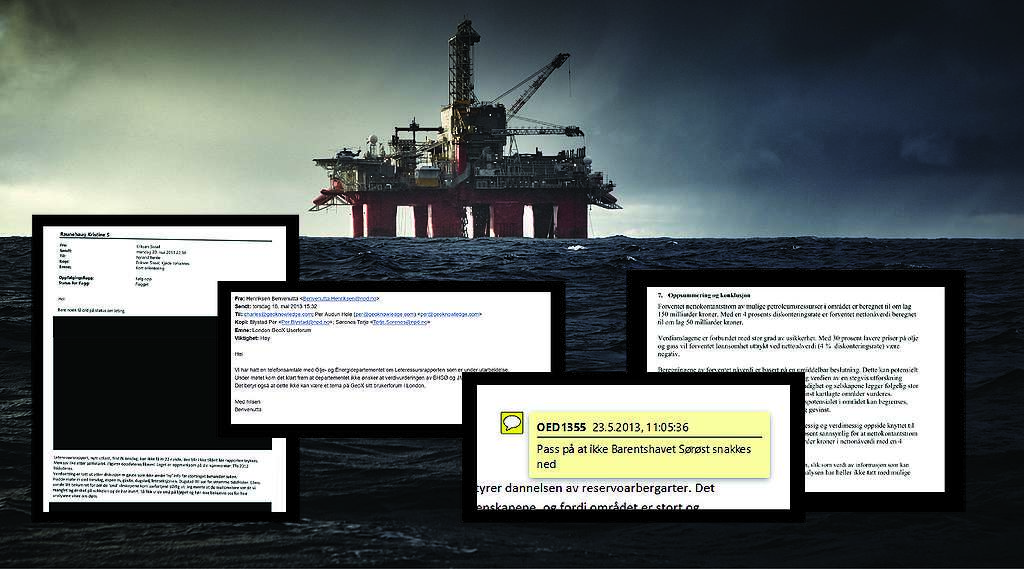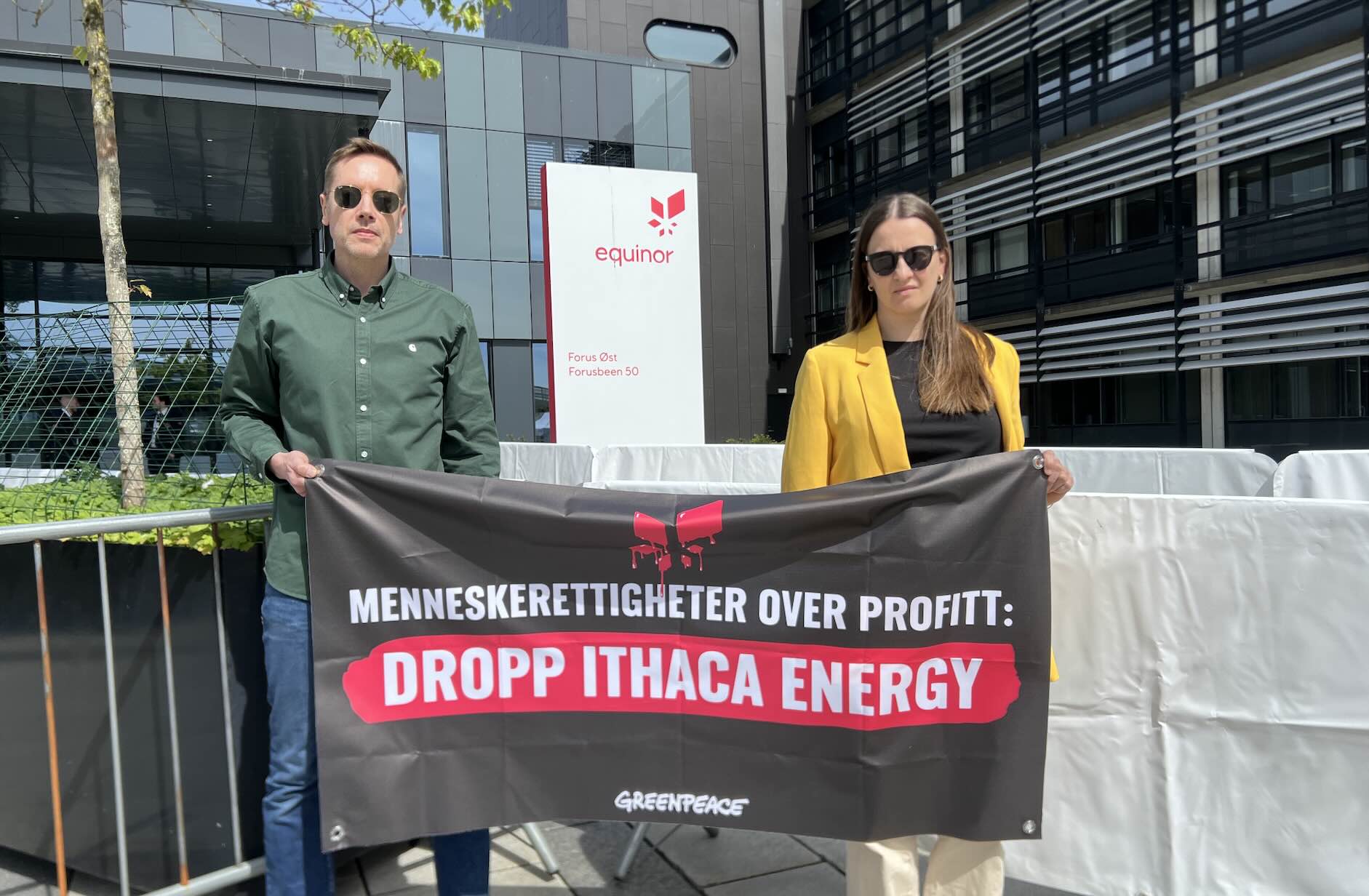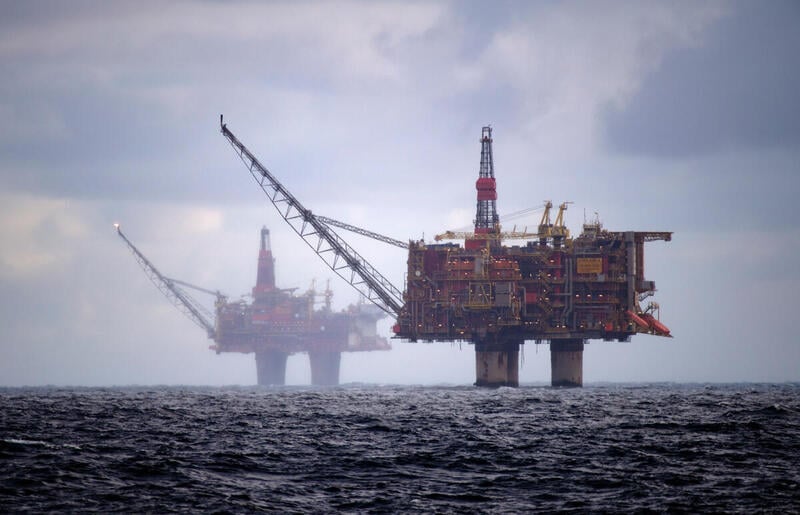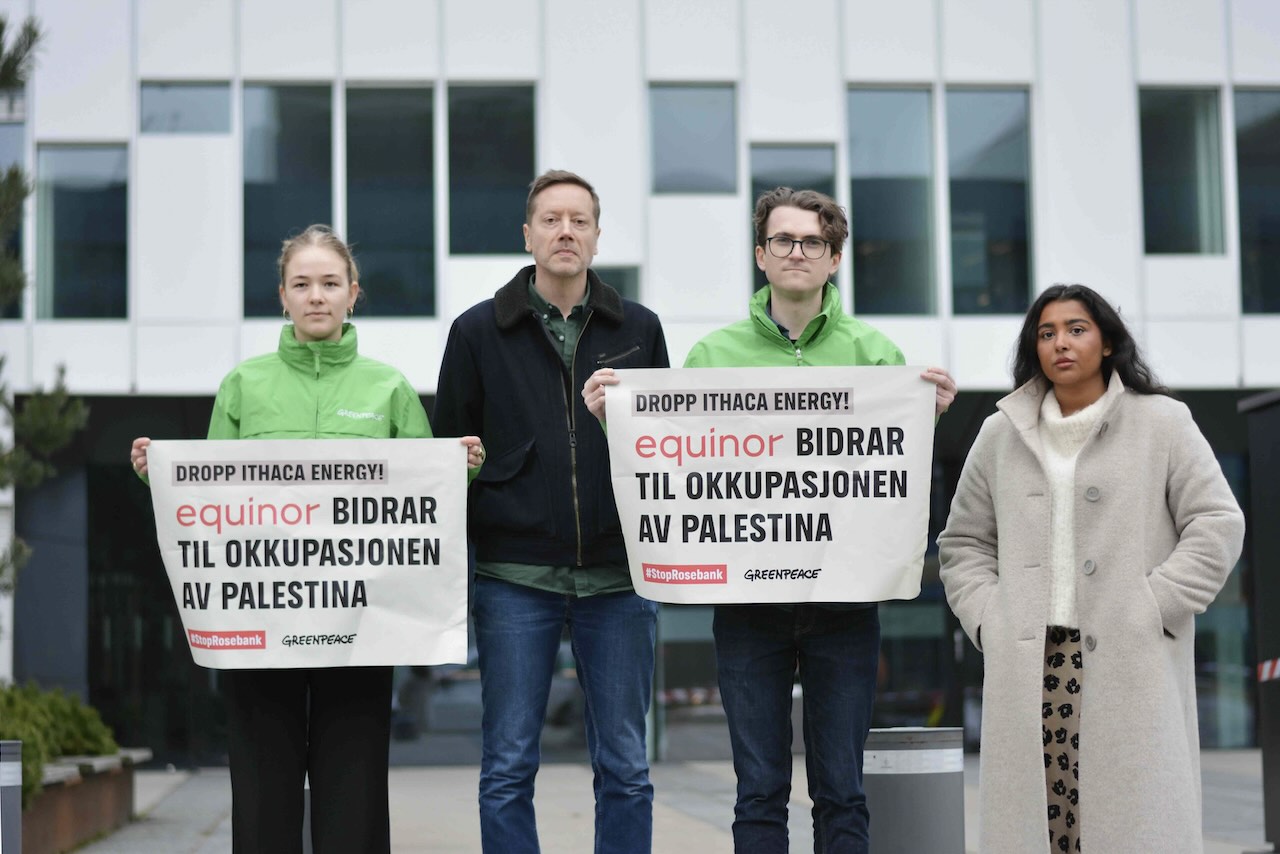
The Norwegian Ministry of Petroleum and Energy has withheld important information from the Parliament and the public which shows that an opening of new oil fields in the Barents Sea could lead to a several billion NOK net economic loss for Norway.
According to communications disclosed, the Ministry of Petroleum and Energy asked the Norwegian Petroleum Directorate to remove the information that oil drilling could become unprofitable from the Norwegian Petroleum Directorate’s annual resource report for 2013 and asked the Directorate to withhold any reference to it from Parliament while they were considering opening the area.
“The Parliament was deceived and reached a decision on the wrong grounds. The information that has now come to light, seven years too late, is utterly scandalous. Norway may lose billions on oil extraction and the taxpayers are the ones left with the bill,” said Frode Pleym, head of Greenpeace Norway.
The Norwegian parliament approved the 2013 opening of a new area for oil activities in the Barents Sea based on misleading facts. The until-now secret document has been revealed as part of the People vs. Arctic Oil climate lawsuit as the case is taken to the Supreme Court.
“The oil authorities knew about the financial risks for seven years and would not disclose the updated figures until we started digging. This report will undoubtedly be an important piece of evidence when the climate lawsuit is heard by the Supreme Court next week,” said Pleym.
Taxpayers’ money covers 78 percent of the cost of exploring for oil in Norway. The government already knew in 2012 that exploration might be unprofitable. Neither the taxpayers nor the parliament were let in on the secret. Even after environmentalists sued the government for continuing to drill for oil in the Arctic, the government did not reveal this information.
The exploration activity that has so far been carried out in the Arctic has not produced any major discoveries of oil or gas, which supports the previous reports showing that the activity may be unprofitable.
The government knew that in the event of a 25 per cent drop in oil prices, oil exploration in the area would be a losing gambit. The assumption of an 120 USD per barrel oil price for the coming 20 years is nowhere near the current oil prices of 40 USD/barrel nor future estimated oil prices of between 50-70 USD/barrel.
According to communications recently disclosed, the Ministry of Petroleum and Energy asked the Norwegian Petroleum Directorate to remove the information that oil drilling could become unprofitable from the Norwegian Petroleum Directorate’s annual resource report for 2013 and asked the Directorate to withhold any reference to it from Parliament while they were considering opening the area.
Background
The People vs. Oil climate lawsuit is being heard in the Supreme Court for seven days starting on 4 November. In this connection, the Norwegian General Attorney submitted a report to the Supreme Court on Friday 21 August, which had so far been held back from the plaintiffs and the general public.
In the spring of 2013, the government presented a report to Parliament with a proposal to open the Barents Sea southeast (BSSE) for oil drilling. In connection with this proposal, an impact assessment (IA) was made, which contained a financial assessment. This was the last assessment the Parliament received before they considered the opening. As presented to the Parliament, they showed that the oil business in those areas would be very profitable.
The plaintiffs in the People vs. Oil climate lawsuit have already shown that these calculations were subject to major errors. Throughout this litigation, the State has dismissed these errors as insignificant. Now it also turns out that the Ministry of Oil and Energy has been holding back updated calculations they did not present to the Parliament, which shows that the profitability of the oil fields is questionable. The until-now secret analysis is more thorough than the information given to the Parliament and shows a completely different and much more negative result. The report is dated 8 March 2013, while the report to Parliament, which contained the outdated calculation, was presented to Parliament on 26 April.
The main conclusions of the secret economic analysis:
- The fields in BSSE have a 25 percent chance of ending in a net negative value, assuming the oil and gas prices in 2013 (120 USD/barrel)
- The fields are more likely to turn a loss than a profit. Current oil and gas prices, as well as the Norwegian Petroleum Directorate’s expectations for future oil and gas prices, are currently significantly lower than the 2013 estimate, which the report is based on.
This is serious because:
The report was never presented to the Parliament and has never been made public.
The analysis was completed before the Parliament considered the expansion of oil drilling in the Barents Sea starting on 26 April 2013. The Parliament was presented with an outdated analysis with significant errors.
In other words: The Ministry withheld updated information, which shows that an oil opening could lead to a significant economic loss for Norway. As a consequence, the Parliament opened an area for oil activities on incorrect and outdated facts.
All figures in the report have been converted to net present value. This shows that the Norwegian petroleum directorate believes it is relevant to discount such economic studies, even though the Ministry of Petroleum and Energy has argued that it is not necessary for their argument in the People vs. Oil climate lawsuit.
The state has not presented this report in court, even though the parties in the climate lawsuit have requested that all relevant economic assessments be submitted, and this clearly falls within this category. The state has consequently withheld relevant information from the courts.
Sources:
National budget (page 39, in Norwegian)
NPD (futures in 2016) comes from the report by Rosendahl and Greaker for the lawsuit, on economic issues



